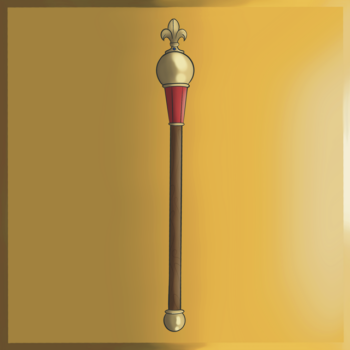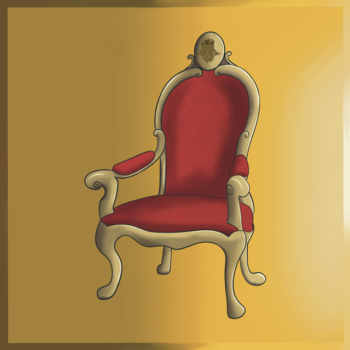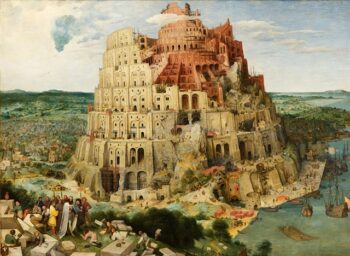Definition:
Authority refers to someone who determines others’ mandates and prohibitions.
Etymology:
The word authority originates from the Latin word “auctoritas,” which is composed of “auctor,” meaning creator, and “itas,” meaning condition. The word “creator” is the same word as God. God through religion is posed as the authority of the whole universe. The Bible: Romans 13:1-2 (BBE): “For every soul is to be under the authority of those who are over him; because there is no authority but by God, and all authorities are put into their place by God.” Which is a way of saying that God and authority is the same word.
The English word “government” stems from the Latin word “gubernare,” meaning to govern, meaning to control. “Ment” stems from the Latin word “mentum,” meaning condition or mind. The word “government” has the same meaning as “mind control.”
The word “state” is the same word as “condition” and “mind”, meaning fantasy.
The words “authority”, “government”, and state are all synonyms.
Description:
It is important to understand that authority is not a magical right given by God; authority is a fictional concept. For the idea of authority to work, it requires believing that authority exists and also obeying authority.
The government consists of a bunch of incompetent overpaid idiots with a lack of ability to think for themselves, but who only follow orders from the elite. The government is a tool that functions as both a weapon and a shield used by the elite to control the population and maintain a system of slavery. The government’s job is not to serve and defend the population; but to serve and defend the elite from the population.
Articles:
Capitalism (The Global Monetary System)
Definition: Capitalism is a belief that ownership exists and how it can be improved. Capitalism is most commonly defined as an economic system characterized by private ownership of the means…
Hierarchy
Definition: “Hierarchy” is a structure that categorizes units or individuals based on relative levels of authority, power, or importance. Etymology: The word “hierarchy” originates from the Greek word “hierarkhia,” composed…
Symbolism:
Articles:
Banner
Definition: A banner is a long strip of cloth or other material, often bearing a symbol, slogan, or design, that is used for display or advertising purposes. Etymology: The word…
Black Cube
Definition: A black cube is a three-dimensional geometric shape with six equal square faces, uniformly colored black. A cube being black primarily serves as a symbol. Etymology: The word “cube”…
Crown
Definition: A “crown” is a ceremonial headpiece worn by royalty or deities as a symbol of authority, power, and legitimacy. Crowns are typically ornate, made of precious metals and jewels,…
Emblem
Definition: An emblem is a symbolic representation, often consisting of a design, picture, or object, that serves as a recognizable sign or mark of an idea, organization, nation, or individual….
Flag
Definition: A flag is a piece of fabric, often rectangular or square, that is attached by one edge to a pole or rope. Etymology: The word “flag” comes from the…
Illuminati
Definition: “Illuminati” refers to individuals who understand how language, religion, and the world system are scams. Etymology: The term “Illuminati” originates from Latin and means “the enlightened.” It is derived…
Insignia
Definition: An insignia is a badge or symbol that signifies rank, membership, authority, or achievement within hierarchical organizations or groups. Etymology: The word “insignia” comes from the Latin word “insignia,”…
Kaaba
Definition: The Kaaba is a cube-shaped building located in the center of the Masjid al-Haram in Mecca, Saudi Arabia. It is the most sacred site in Islam and serves as…
Megaphone
Definition: A megaphone is a device used to amplify sound. Etymology: The word “megaphone” comes from the Greek words “mega” (meaning “great” or “large”) and “phone” (meaning “voice” or “sound”)….
Orthodox Cross
Definition: The “Orthodox Cross,” often referred to as the Russian Orthodox Cross, is a distinct Christian cross associated particularly with the Eastern Orthodox Church. Etymology: The term “Orthodox” comes from…
Patriarchal Cross
Definition: The “Patriarchal Cross” is a variant of the Christian Cross featuring two horizontal crossbars, with the upper one shorter than the lower one. Etymology: The term “patriarchal” comes from…
Scepter
Definition: Scepters are ceremonial staffs held by rulers as a symbol of their authority and sovereignty. Etymology: The word “scepter” comes from the Latin “sceptrum,” which in turn is derived…
Seal
Definition: A heraldic or symbolic seal is an emblem or insignia used primarily for authentication and to signify authority, ownership, or identity. These seals often incorporate coats of arms, crests,…
Throne
Definition: A “throne” is a ceremonial chair or seat of state, often ornate and elevated, used by a sovereign or high-ranking religious leader as a symbol of authority and power….
Tower of Babel
Pieter Bruegel the Elder: The Tower of Babel (1563). Lucas van Valckenborch: Tower of Babel (1594). Gustave Doré: The Confusion of Tongues. Definition: “Babel’s Tower” is a fictional tower from…
Religion:
Religion tend to promote authority, and threaten the disobedient, unless it’s disobedience to someone who’s not promoting God.
- In the Bible, in Romans, chapter 13, verses 1-7 (NIV), it says: “Let everyone be subject to the governing authorities, for there is no authority except that which God has established. The authorities that exist have been established by God. Consequently, whoever rebels against the authority is rebelling against what God has instituted, and those who do so will bring judgment on themselves. For rulers hold no terror for those who do right, but for those who do wrong. Do you want to be free from fear of the one in authority? Then do what is right and you will be commended. For the one in authority is God’s servant for your good. But if you do wrong, be afraid, for rulers do not bear the sword for no reason. They are God’s servants, agents of wrath to bring punishment on the wrongdoer. Therefore, it is necessary to submit to the authorities, not only because of possible punishment but also as a matter of conscience. This is also why you pay taxes, for the authorities are God’s servants, who give their full time to governing. Give to everyone what you owe them: If you owe taxes, pay taxes; if revenue, then revenue; if respect, then respect; if honor, then honor.”
- In the Bible, in 1 Peter, chapter 2, verses 13-17 (NIV), it says: “Submit yourselves for the Lord’s sake to every human authority: whether to the emperor, as the supreme authority, or to governors, who are sent by him to punish those who do wrong and to commend those who do right. For it is God’s will that by doing good you should silence the ignorant talk of foolish people. Live as free people, but do not use your freedom as a cover-up for evil; live as God’s slaves. Show proper respect to everyone, love the family of believers, fear God, honor the emperor.”
- In Hadith, in Sahih Muslim, Book 20, Hadith 4533, it says: “It is obligatory upon a Muslim to listen to and obey (the ruler) whether he likes it or not, as long as he is not ordered to commit sin. If he is ordered to commit sin, then there is no listening or obedience.”










